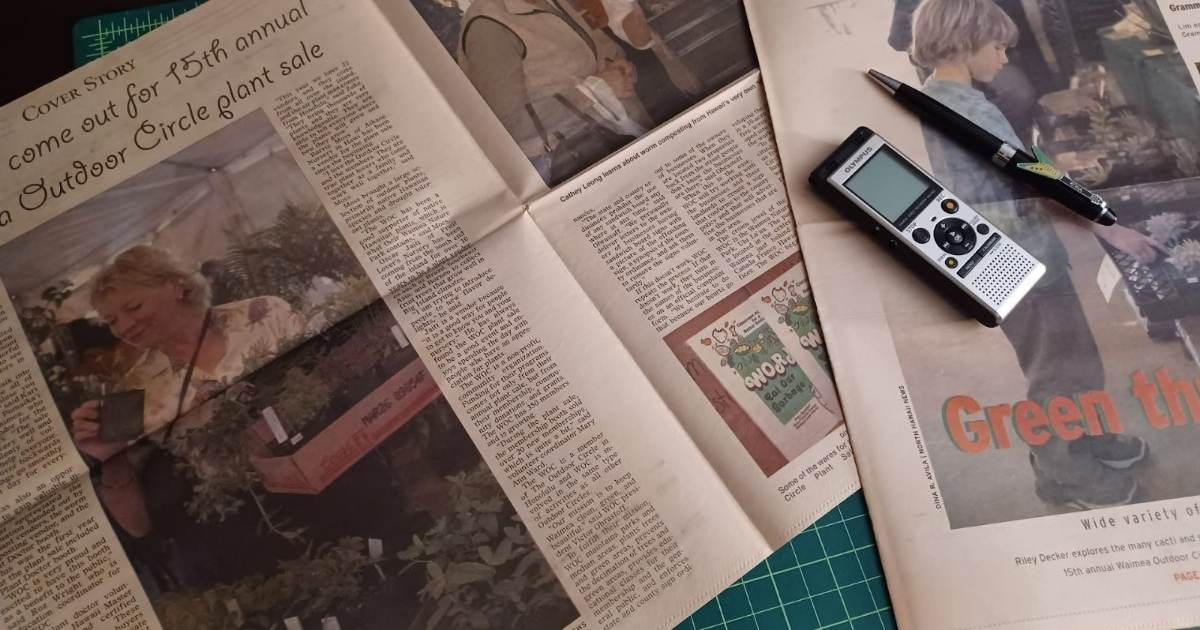Listening skills are essential to interpersonal communication and are especially important for writers of all genres. Good listening skills help you improve relationships, solve problems, and learn new things.
Authors and journalists conduct interviews to uncover background information, quotes, and anecdotes. Technical writers and researchers collect data and find patterns while interviewing subject matter experts.
Business consultants and software programmers discover client needs, concerns, and desired outcomes during the interview process. Even newly hired employees must be effective interviewers with good listening skills to learn how to do their job correctly.
People may collect information in different ways during an interview, but the soft skills needed to be an efficient interviewer are the same for every situation.
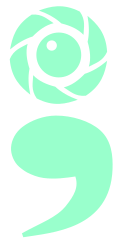
TL;DR
- Good listening skills are essential for effective writing and communication.
- Listening skills help you gather information and understand your audience.
- Active listening helps you ask relevant questions, grasp concepts, and extract information. Focus on the person and show interest.
- Empathy allows you to create authentic characters, capture diverse voices, and portray realistic situations.
- Hone your listening skills to become a better writer and interviewer, and produce high-quality work.
The importance of good listening skills for writers
Good listening skills give you a deep understanding of your topic, help you explain the topic effectively, and charge your creativity. When you hone your listening skills, you’ll create impactful, engaging, and resonant writing that connects with readers.
Good listening skills influence the quality and effectiveness of your work. Here are several reasons why good listening skills are important:
Gives you a better understanding of your audience. When you hone your listening skills, you’ll have a better understanding of the people you interview. You can identify their needs, preferences, and concerns when you actively listen to them. Effective listening skills help you create content that resonates with your audience, communicates ideas, and meets their expectations.
Helps you develop empathy and authenticity. While you’re listening attentively to others, you’ll see new perspectives, uncover experiences, and experience emotions. Empathy allows you to create authentic characters, capture diverse voices, and portray realistic situations. Empathy enhances the believability and relatability of your writing.
Makes it easier to research and gather information. Listening is vital for conducting thorough research, especially when interviewing experts and obtaining firsthand accounts. Active listening allows you to ask relevant questions, grasp complex concepts, and extract information. This attention to detail enhances the accuracy and credibility of your writing.
Offers insights into ways you can improve your writing. One way to become a successful freelance writer is to be receptive to feedback and criticism. Listening attentively to feedback from editors, peers, and readers gives you insights into your strengths and weaknesses. Use this feedback to refine your skills, identify improvements, and produce higher-quality work.
Provides a source of inspiration and ideas. Active listening can be a source of inspiration. You’ll find new ideas, perspectives, and stories when you immerse yourself in podcasts, lectures, and everyday encounters. These experiences spark creativity and lead to unique stories.
Improves your writing skills. Your writing must clearly communicate if you want to attract an audience. Good listening skills help you absorb information, understand complex concepts, and express ideas clearly. When you listen actively, you’ll meet your readers’ needs and expectations because your writing will be concise and persuasive.
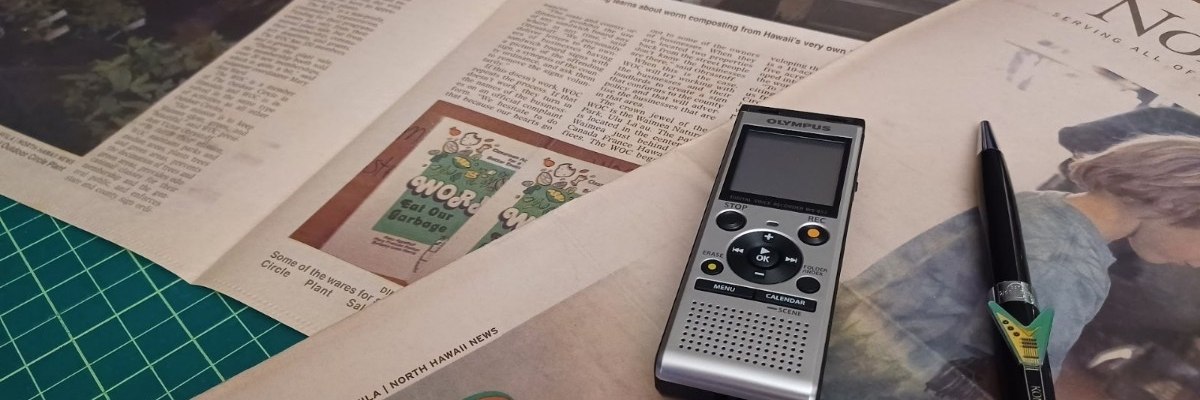
Practice good listening skills while guiding interviews
When I started my first technical writing gig, I freaked while being introduced to programmers I would be interviewing.
It was my first day. I was clueless. I didn’t know where to start. I didn’t know what questions to ask, and, to be honest, I didn’t know how to dig for the information I needed.
I did my best to direct the interview conversations. Still, I felt I had lost control when programmers rambled on about how this piece of code processed a dataset and that piece of code did a sort function.
I didn’t realize that the more I tried to direct the interview, the less I learned about the job I had been assigned to do. As I stumbled and stammered during those interviews, I felt my confidence deflate.
Then I met Andrea. Andrea had a reputation for being personable and productive. She was respected and admired by everyone.
As I watched Andrea, I saw that it wasn’t her fluent conversation that helped her gather material. Instead, she was the quiet type. It was her attentive listening skills people admired.
During interviews, Andrea focused on the person she interviewed and listened with both ears open. She showed interest in the topic, made her interview subject feel important, and concentrated on the conversation.
Not once during an interview did she look out the window, doodle in her notebook, or check her messages.
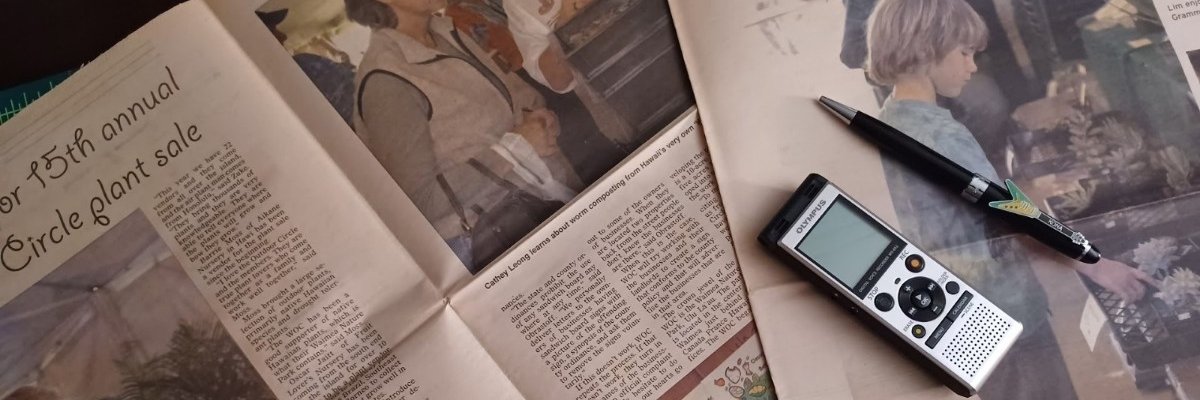
6 listening skills you’ll need for compelling interviews
I’d like to share the soft skills Andrea used to be a good listener and an effective interviewer.
Follow these tips to become a better listener and interviewer. When you practice good listening skills, you’ll gather more information from your sources and write more accurate and engaging articles.
Before introducing you to Andrea’s interviewing style, I’d like to share an interview with Katie Couric. She talks about how she conducts a good interview.
Remember names, faces, and places
Andrea’s most admired talent was her ability to remember people’s names and recall small tidbits of information about places or events.
What was Andrea’s secret?
Andrea prepared in advance. Before each interview, she wrote the interview subject’s name at the top of her notepad and added them to her contact list. And, along with keeping an address book filled with the names of people she met, she wrote down a few things about them.
I asked Andrea what she did when she couldn’t remember a name or recall some tidbit of information. “I don’t hide it,” she said.
Instead of covering up her lack of knowledge, she was frank during the interview and admitted her inability to remember.
Andrea’s co-workers appreciated this frankness, and this frankness made her appear genuine.
She didn’t worry when she forgot someone’s name. “It happens to the best of us, even when we make an effort to remember the names of people we’ve met and other important details,” she admitted.
Focus your attention on the interview
One day, I watched Andrea conduct an interview. I watched how she kept her interview subject animated and talkative. She leaned forward as she listened and focused her eyes on the person she interviewed. When she looked away from the person, it was only for a second to jot down a quick note.

The recorder is your friend in an interview. Camouflage the recorder. It can be visible but shouldn’t detract from the conversation. When you use a microphone, don’t hold it in your interview subject’s face.
After the interview, I asked the person why he responded to Andrea the way he did.
“She listens as if I am the only person in the world, and she’s interested in what I say.” He also said he would happily grant Andrea an interview whenever she asked.
You can be a good interviewer even if you’re tongue-tied or stuttering-shy around people you don’t know well. All it takes is to listen with a kind presence and pay attention to the people talking to you.
Here are some tips for focusing on the interview:
- Be present and give the person your full attention.
- Don’t be distracted by phones, computers, or surroundings.
- Maintain eye contact to encourage the person to keep talking.
- Nod your head to show you understand what the other person is saying.
- Ask questions to let them know you want to learn more.
- Summarize what you’ve heard to show you understand what the person has said.
When you apply these listening skills, you’ll be amazed at how well the person responds and how freely they answer your questions. They may even answer questions you didn’t ask.
TED-Ed has some awesome tips for putting these listening skills into action.
Show interest in the topic
It’s not always easy to be a good listener. Especially when the subject is unfamiliar to you or when they have a monotone voice. The challenge is to stay awake during these times.
I asked Andrea how she managed to stay interested and involved during those problem interviews. “When I act interested and listen for the interesting details, it doesn’t take long before I’m interested in the subject,” she replied.
How does she stay awake when the conversation gets monotonous? “I remind myself that I have a job to do, and it’s my job to be interested in the topic so that I can explain it to others in a fun and informative way.”
Another way to show interest in the topic is to ask thoughtful questions that guide the interview. You’ll also leave a positive impression on the person you interviewed.
Here are some tips for asking questions:
Prepare in advance. Research the person, place, or topic to gather background information. Develop questions based on this research to ask during the interview. When you’re prepared, you’ll show your interview subject that you’re enthusiastic and engaged. And you’re interview subject will be more open with their responses.
Focus on the reason for the interview. Ask questions related to the topic and your reason for writing the article. Asking questions shows that you are interested in the topic and have thoughtfully considered how it fits into the scope of your article.
Be specific and concise. Ask clear and focused questions that allow your interview subject to provide detailed responses. Avoid vague or generic questions that should have been answered while doing your research. When you ask specific questions, you show that you have done your homework and are interested in the person and topic of your article.
Take cues from your interview subject. Pay attention to the topics discussed during the interview and ask questions that build upon them. Your interview subject will see that you are actively listening to them. They’ll become more engaged and offer more information than you asked for. They may also provide ideas for other articles on the topic.
Respect time constraints. Be mindful of the interview duration and ensure your questions can be answered within the allocated time. If you have multiple questions, prioritize the most important ones or ask if there is time for a couple more questions before the interview concludes.
Don’t interrupt when someone is talking
Andrea never interrupts the other person during an interview. “It’s bad manners to interrupt people when they are talking, and it doesn’t get the job done,” she told me.
A good listener doesn’t interrupt. If you don’t understand what they said, wait until your interview subject pauses before asking a question. “Let them finish their sentence,” Andrea recommended.
When an interview subject searches for a word, don’t supply the word for them. It’s impolite and can leave your interview subject feeling inferior.
When interviewing someone with a stutter or other speech impediment, curb your desire to help them. The person knows they have a speech difficulty and works to overcome their challenge. Interrupting them may only cause more frustration.
It’s also important that your note-taking doesn’t interrupt the person’s train of thought. Taking notes during an interview can be as distracting as interrupting the person.
Here are some tips to help you improve your note-taking skills:
Be prepared. This tip can’t be stressed enough. Become familiar with the topic before the interview. When you’re prepared, you’ll ask informed questions and take fewer notes while identifying the key points. When you understand the topic, your note-taking will be more effective.
Develop a note-taking format. Your note-taking style is up to you. These notes can be as simple as headings and bullet points. Or you can use a template tailored to your needs. A structure makes it easier to refer to your notes while writing the article.
Capture key information. Focus on capturing key points, main ideas, interesting phrases, keywords, statistics, quotes, and other details discussed during the interview. Be selective and prioritize information that is relevant to your article. Avoid transcribing every word. That’s what the recorder is for. Taking too many notes is a distraction.
Use shorthand and abbreviations. Develop a system of shorthand and abbreviations that make it easy for you to jot down information quickly. This shorthand helps you keep up with the conversation and avoid missing points. Your shorthand must be clear to you. There’s nothing worse than not being able to read your own writing.
Write legibly and clearly. You must be able to read your handwriting to understand your notes. Consider taking notes on a laptop or tablet if that’s more efficient. Although, if you’re in a face-to-face meeting, tapping the keyboard may be distracting.
Use your notes to highlight follow-up questions. If a question comes to mind while an interview subject is talking, make a note of the question instead of interrupting. That way, you’ll remember to ask this question later and keep the interview on topic.
Review your notes after the interview. While the interview is still fresh in your mind, use your notes to summarize the main points and highlight key takeaways. This process helps you outline and develop your article.
If you’re not comfortable with your note-taking skills, remember that practice makes perfect. When you find a method that works for you, you’ll walk away from an interview with accurate information, which helps you produce high-quality nonfiction and technical writing.
Hide your boredom and stay engaged
Yawning, eye-rolling, and answering the phone during an interview are rude, and these gestures distract the person you’re interviewing.
Andrea says interviewers must stay engaged by “keeping it interesting and productive.”
A good listener prompts an interview subject to continue talking. When she gets bored, Andrea gets more involved in the interview. She may ask more questions than usual, or she asks her interview subject to draw diagrams.
“Anything that breaks the interview routine can break the boredom,” she offered.
The Harvard Business Review explains the skills you’ll need to be a better listener.
Express your gratefulness for the person’s time
After an interview, Andrea thanks the person for sharing their time and knowledge. She also lets them know they played an essential role in her research.
“I want them to know it was worth my time to meet with them, that what they told me was significant to the project, and that they made my job easier,” she said.
Andrea feels a simple “thank you” ensures future encounters run smoothly and without friction.
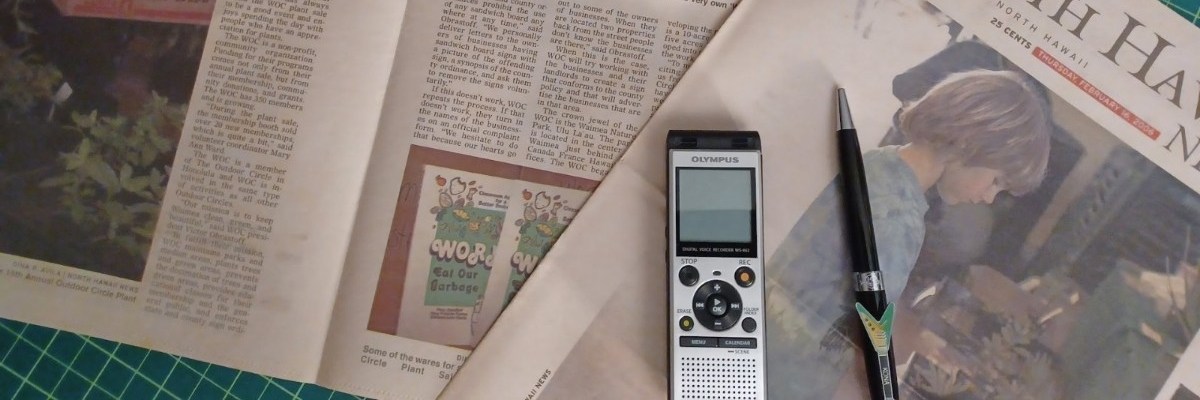
Constantly improve your interview and listening skills
Andrea cultivated her listening talent over time and with experience. Becoming a good listener may be hard work, but it’s worth the effort. Andrea credits her success to her eagerness to learn, her ability to focus her attention, and her genuine interest in the people she interviews.
If you want to find memorable stories, hone your listening skills. Excellent listening skills combined with a talent for building rapport with others are a must. When you listen carefully during an interview, you’ll find a wealth of information you’d never find any other way.
FIND RELATED ARTICLES
